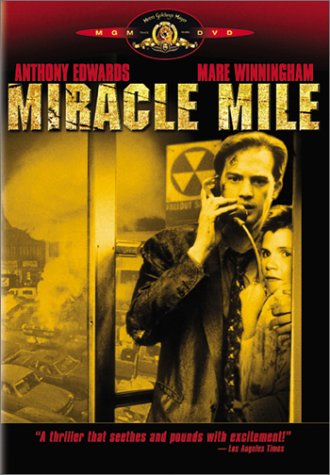The 1992 film, Rage and Honor, tells the story of two people from different worlds, who come together to kick ass and save a declining American city.
Preston Michaels (Richard Norton) is a cop from Australia who has come to America as a part of an exchange program. When he’s not working undercover, he’s supplementing his income by working as a bodyguard for what appears to be an 80s cover band.
Kris Fairfield (Cynthia Rothrock) is a teacher at the local high school who also moonlights as a karate instructor. She’s haunted by the death of her parents and the subsequent disappearance of her brother. She cares about her students, even though hardly any of them actually appear in the film. In fact, the whole high school teacher thing never really matters much in the grand scheme of things.
Preston and Kris are teaming up to take down spacey drug lord Conrad Drago (Brian Thompson). Conrad has a fierce mullet, a cocaine addiction, and a knowledge of all of the body’s pressure points. His girlfriend is Rita (Terri Treas) and the only thing that could possibly prevent Drago and Rita from taking over the city is a tape that reveals Rita and a bunch of crooked cops killing someone. Kris and Preston are trying to find the tape before Drago and Rita find it. Somehow, it all eventually leads to a homeless stock broker named Baby (Stephen Davies) and a weird fight club that’s run by Hannah the Hun (Alex Datcher).
It’s an incredibly silly film, to be honest. It’s the type of film where Preston gets shot once in the side and once in the leg and neither time does it slow him down. (He does mention that his leg hurts at one point but he never starts to limp or anything like that.) Kris, meanwhile, is given a tragic backstory that is explained to us in-between scenes of awkward comedic relief. Hannah goes from being a calculating villainous to a heroic ally, without the film attempting any explanation as to why. Meanwhile, despite Brian Thompson’s best efforts to be menacing, Conrad is written as being some sort of flakey, New Age drug dealer. He’s about as intimidating as the biggest guy in a drum circle. There’s really not much rage or honor to be found in Rage and Honor.
And yet, it was impossible for me to dislike the film. Every time Cynthia Rothrock did a flying kick and sent some jerk flying, the film won me back. Unfortunately, she didn’t really get to do as much fighting as she should have. She had to share the screen with Brian Thompson and Richard Norton, who both received fight scenes of their own. All three of them looked good fighting but Cynthia was the clear star. What she lacked in actual acting ability, she made up for with pure enthusiasm. Watching her, you realized that she was not only good at fighting but she enjoyed it as well. For all the film’s flaws, Cynthia kicked everyone’s ass and that’s really all that mattered. It was empowering and, even more importantly, it was a lot of fun to watch.
Go, Cynthia, go!
Previous Guilty Pleasures
- Half-Baked
- Save The Last Dance
- Every Rose Has Its Thorns
- The Jeremy Kyle Show
- Invasion USA
- The Golden Child
- Final Destination 2
- Paparazzi
- The Principal
- The Substitute
- Terror In The Family
- Pandorum
- Lambada
- Fear
- Cocktail
- Keep Off The Grass
- Girls, Girls, Girls
- Class
- Tart
- King Kong vs. Godzilla
- Hawk the Slayer
- Battle Beyond the Stars
- Meridian
- Walk of Shame
- From Justin To Kelly
- Project Greenlight
- Sex Decoy: Love Stings
- Swimfan
- On the Line
- Wolfen
- Hail Caesar!
- It’s So Cold In The D
- In the Mix
- Healed By Grace
- Valley of the Dolls
- The Legend of Billie Jean
- Death Wish
- Shipping Wars
- Ghost Whisperer
- Parking Wars
- The Dead Are After Me
- Harper’s Island
- The Resurrection of Gavin Stone
- Paranormal State
- Utopia
- Bar Rescue
- The Powers of Matthew Star
- Spiker
- Heavenly Bodies
- Maid in Manhattan






 Strange movie, Ted & Venus.
Strange movie, Ted & Venus.